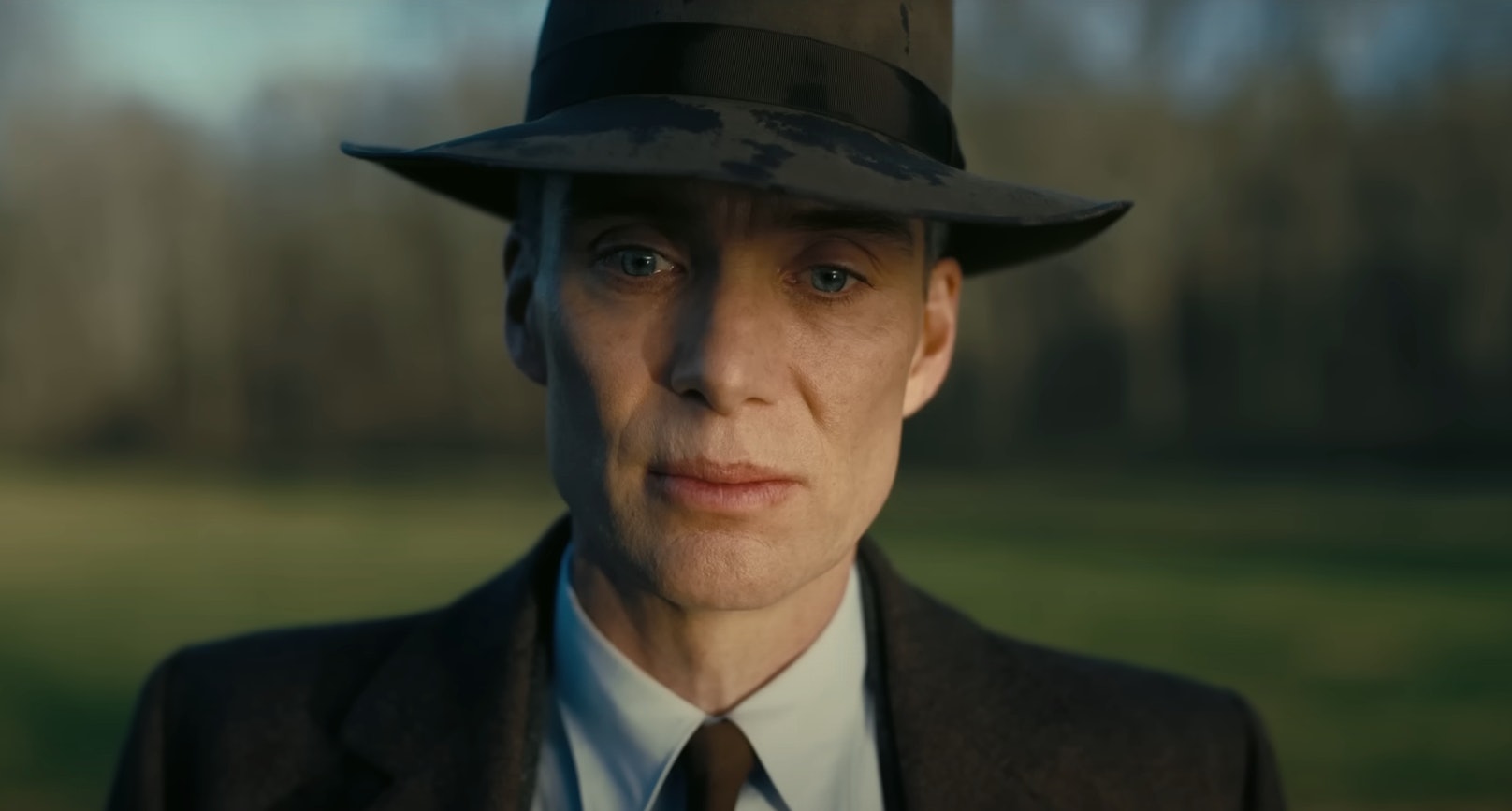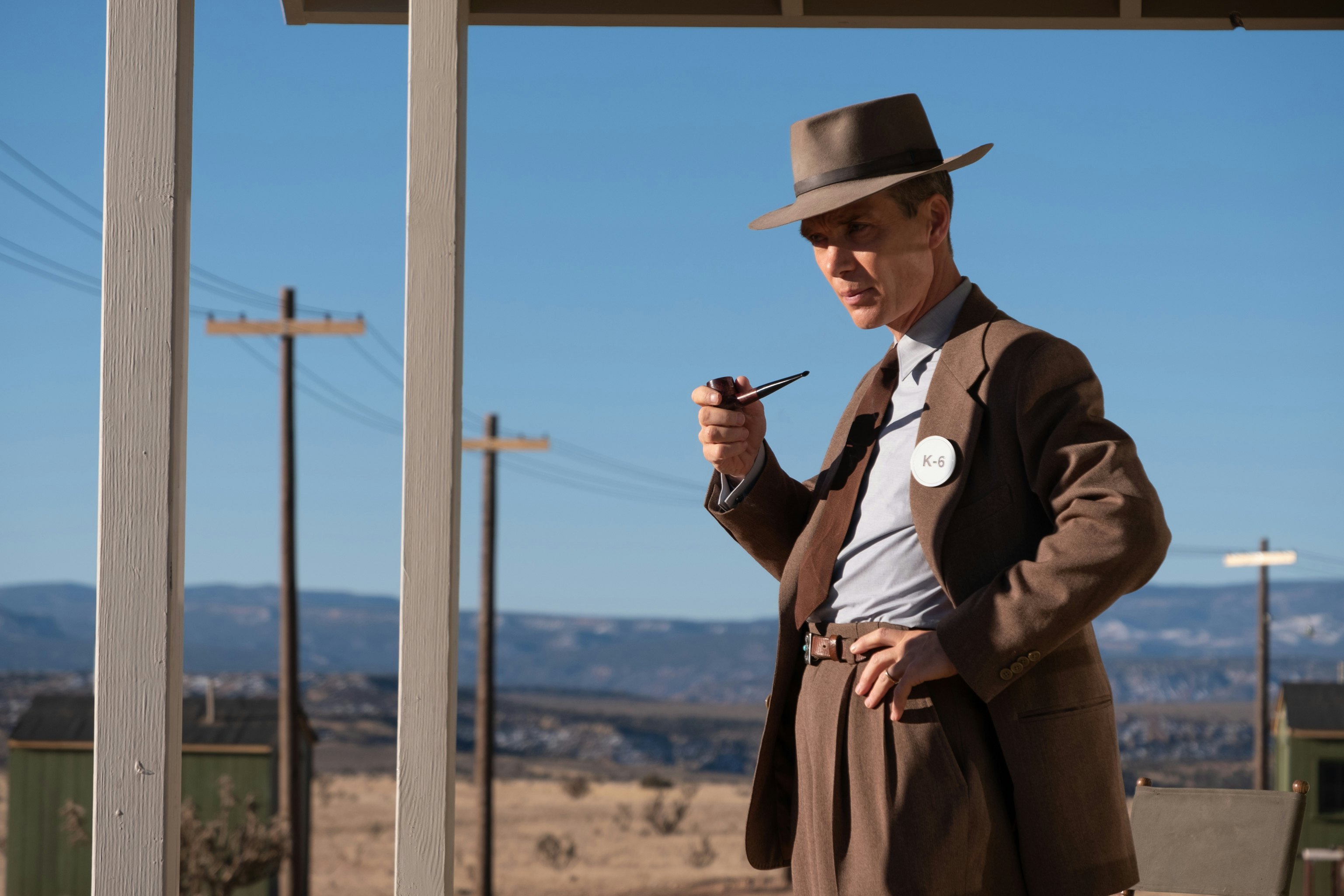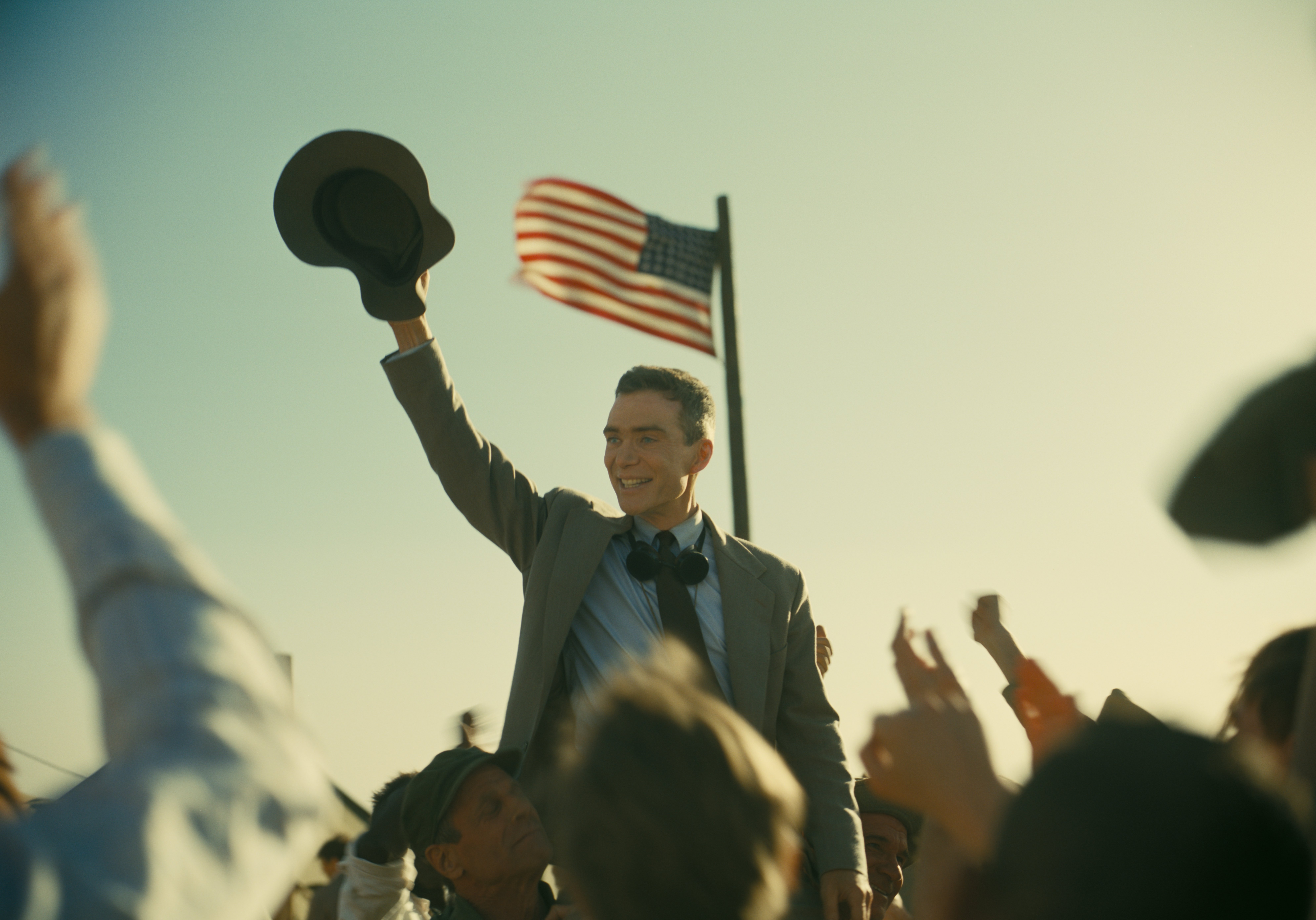
Everyone knows that Oppenheimer helped invent the atomic bomb, but did you know he was also an alleged communist? That’s the premise of Christopher Nolan’s new movie, which explores the life of Robert Oppenheimer (played by Cillian Murphy) as he’s forced to defend his flirtations with socialist ideals at a shady security hearing that’s stacked against him.
While the United States finds (spoiler alert!) no evidence that Oppenheimer ever colluded with the Soviets, they still strip his security clearance. But while Oppie may not be a Commie with a capital C, the movie makes it clear that the father of the atomic bar was a staunch supporter of worker’s rights — at least until it started to interfere with his own career.
By weaving his controversial security hearing into the fabric of the movie, Nolan transforms Oppenheimer into a timely endorsement of workers’ rights at a time when a lot of people are rethinking their own rights as workers (including the Hollywood actors and writers currently on strike). But was Oppenheimer a communist or even pro-labor? Here’s what you need to know.
Was Robert Oppenheimer a communist?

“I never accepted Communist dogma or theory.”
That’s a direct quote from Oppenheimer himself. Open and shut case, right? Well, maybe.
Another quote from American Prometheus, the biography that Oppenheimer is based on provides a bit more context. Here’s a conversation between Robert and General Leslie Groves (played by Matt Damon in the movie):
Gen. Leslie Groves: Are you a communist?
J. Robert Oppenheimer: No.
Gen. Leslie Groves: Have you ever been a communist?
J. Robert Oppenheimer: No.
Gen. Leslie Groves: Then why are half your friends communists?
J. Robert Oppenheimer: Not quite half.
The friends that Groves is referring to include Oppenheimer’s wife Kitty, his former girlfriend Jean Tatlock, his brother Frank, and Frank’s wife Jackie. Early in the movie, we see Oppenheimer attend parties in California hosted by communists, though he always presents himself as simply a curious mind rather than a staunch supporter of the cause.
In the FBI’s files on Oppenheimer, it pointed to the fact that he was a member of the American Civil Liberties Union’s executive committee. At the time, the FBI considered the ACLU to be a Communist organization. However, it should be noted that this was during the era of McCarthyism, where seemingly no one in America was safe from accusations.

Oppenheimer was later exonerated by President John F. Kennedy. And, more recently, in a 2022 statement, Secretary of Energy Jennifer Granholm wrote the following:
“In 1954, the Atomic Energy Commission revoked Dr. Oppenheimer’s security clearance through a flawed process that violated the Commission’s own regulations. As time has passed, more evidence has come to light of the bias and unfairness of the process that Dr. Oppenheimer was subjected to while the evidence of his loyalty and love of country have only been further affirmed.”
Did Oppenheimer support workers’ rights?

The movie makes it clear that the answer is yes, though only up to a point. Early in the film, we see Oppenheimer working to organize a union of professors and students at Berkley where he works, despite pressure to stop from some of his colleagues.
However, when the race to build the atomic bomb begins, it becomes clear that Oppenheimer won’t be allowed to contribute unless he stops these pro-labor activities. Without hesitation, he does exactly that, though it’s tough to say he made the wrong choice considering the very real fear at the time that the Nazis would build their own nuclear weapon first.
Later, when the scientists working on the Manhattan Project decide to organize themselves, Oppenheimer doesn’t seem particularly sympathetic to the cause. Even when it’s clear that WWII is already won, he pushes forward with the creation of his bomb despite the organized protests of his colleagues. Whatever spark he once had for this particular brand of justice is subsumed by his desire to change the world with science.
As Nolan’s movie makes clear, Robert Oppenheimer was a complicated man. And while his intentions were often good, his legacy is a dark one. The A-bomb may be the thing we think of first when his name is mentioned, but his history with workers’ rights and communism appears to be just as murky.







